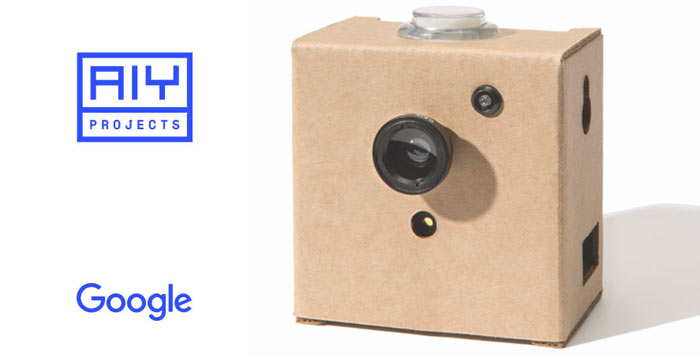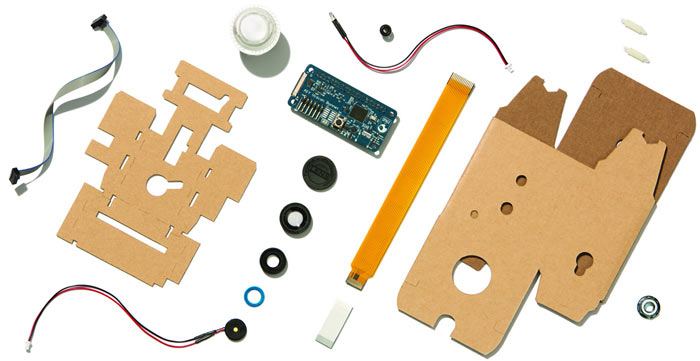Google has unveiled its second AIY product. If you are unaware, AIY stands for Artificial Intelligence Yourself, and this time around we are presented with what Google calls the AIY Vision Kit. The purpose of this kit is to facilitate the making of "devices that see". The previously released AIY Voice Kit was a DIY product that allowed purchasers to make a cheap 'Google Assistant' type of device. Google says the Voice Kit was a "huge hit" and has thus it inspired this Vision based follow-up.

The purpose of the AIY Vision Kit from Google is best explained by the bullet points describing possible uses. The device, once assembled and deployed, can be used for the following tasks:
- Identify all kinds of plant and animal species
- See when your dog is at the back door
- See when your car left the driveway
- See that your guests are delighted by your holiday decorations
- See when your little brother comes into your room (sound the alarm!)
As you can see the camera plus the on-device neural network acceleration make this device rather smart. The focus of the smarts seems to all stem from image recognition of one sort or other, e.g. recognising objects and pets, recognising people and their facial expressions.

Google supplies software that includes three TensorFlow-based neural network models for different vision applications. Interestingly you can also train and retrain models on your computer or any cloud device. For developers there is a Python API to change the RGB button colours, adjust the piezo element sounds and access the four GPIO pins.
Google supplies the custom hardware in its AIY Vision Kit as follows:
- a cardboard outer shell
- the VisionBonnet circuit board
- an RGB arcade-style button
- a piezo speaker
- a macro/wide lens kit
- a tripod mounting nut
- and other connecting components

The major component in the above list is the VisionBonnet board for Raspberry Pi. This board is powered by an Intel Movidius MA2450, a low-power vision processing unit capable of running neural network models on-device.
The above kit will retail for $44.99 and it's already up for pre-order at Micro Center in the US at that price. However the kit requires some other components to be usable and these are; a Raspberry Pi Zero W, a Raspberry Pi Camera, and a microSD card.
Coincidentally Intel just revealed a deep learning-enabled wireless video camera that it has created in collaboration with Amazon Web Services. It's called DeepLens.













